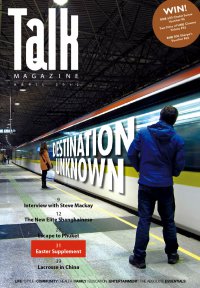Expat Tax Advice

By James Lindsay
Last month, James Lindsay from Bamboo Money tallied up your investment costs. Now that you’ve learned how to improve your ROI, James takes the time to clear up expat tax myths.
One of the most common expat misconceptions is that their tax situation has necessarily improved just by moving out of their home country. The reason it’s not as simple as that is because your tax status isn’t just determined by your Residence, it’s also determined by your passport. US citizens know this better than anyone – they have to pay income tax to Uncle Sam wherever they are in the world. But others, too, have tax connections to their home country that last for years. For example, I have my Domicile (a different concept from Residence) in the UK, which means the UK taxman will take inheritance tax even if I’m living overseas for years and years before I die. So the first important tax lesson is, be sure you know where you have to pay tax.
Actually, a lot of us don’t get this sorted. Shanghai-based US tax advisor David Yen from US Abroad Tax told me that he’s amazed that lots of American citizens and green card holders don’t file their annual US tax return because of an exclusion for Foreign Earned Income ($91,500 in 2010). But the exclusion means they don’t have to pay US income tax on that amount; not that they don’t have to file a tax return. “On the contrary, the return needs be filed on a timely basis to be eligible for the exclusion.”
What about taxes due to the Chinese internal revenue? Expats have to pay tax here on any income from work done in China, but what about income from work you do in another country (or capital gains from an investment overseas)? You don’t have to pay Chinese tax on these as long as you don’t live in China for five straight years – hence the famous 30 day tax holiday after four years and 364 days. You reset the clock by leaving the country for a month; and come back at the beginning of another five years where you just pay income tax on your China-sourced income.
Can you do anything to reduce your taxes in China? Shirley Brown, a CPA working in Beijing, advises, “Chinese tax rates are high in the upper brackets, but currently there is legitimate tax planning that is available for non-domiciled foreign nationals”. That sounds like a Good Thing. But hold on, there’s more: “On the other hand, exercise caution when researching Chinese tax issues (i.e., speaking with other expats or looking on internet forums), as there are many tax practices that do not conform to Chinese tax law”. Yes, quite. I know from (someone else’s) experience that while it’s possible to pay parts of income from the employer’s offshore account to the employee’s offshore account, it only takes a disgruntled employee’s phone call to the tax bureau for things to go wrong.
What about paperwork in China? Here’s David Yen again: “All individuals working in China need be reminded that they are required to fill out an Individual Income Tax Return if their annual China sourced income exceeded RMB 120,000. Although the form is straightforward, the return should be filled out in Chinese or in both Chinese and a foreign language; therefore, in practice employers should usually prepare and submit the so-called annual self declaration return for their expat employees.” I went back to David about this. My previous understanding from a BritCham seminar in 2010 was that the central government started enforcement in Beijing with some expat big earners, but that it had not got much attention in Shanghai. David replied in no uncertain terms:
“The so-called big earners cover just about every expat I know of, unless you are living off your wealthy Chinese girlfriend. The return is a national requirement and is not limited to Beijing only. Most government is slow moving in implementing policies. Make no mistake that the Chinese government will eventually catch up with all the expats whether you are in a second or third tier city.” So don’t say you haven’t been warned.
James is the editor of ‘eg’, the online money magazine for expats in Shanghai. Visit www.egmoneymagazine.com to read more about making the most out of your money.

